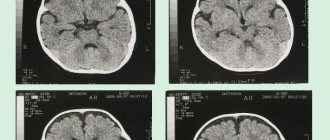The mental health of each person is a very delicate matter, the slightest fluctuations of which can lead to a number of negative consequences for the subsequent full-fledged social life.
In the modern world, according to statistics, every fifth resident of a large city is a carrier of a certain type of mental disorder. This is caused by an overactive rhythm of life, chronic fatigue and frequent stressful situations. The danger is that some people may not be aware of their illness for many years, attributing everything to fatigue and workload. And only at the moment when a failure occurs, it becomes clear that the reasons lie much deeper and it is necessary to look for them with a qualified specialist. Treatment of mental disorders. Symptoms and signs
Today, medicine knows many mental illnesses, which differ in different types of manifestation. However, there is one connecting link between all disorders - this is a combination of abnormal thoughts, emotions and behavioral reactions aimed at the patient himself or at people around him.
The most common mental health disorders are:
- depression;
- schizophrenia;
- panic attacks;
- eating disorders (anorexia, bulimia);
- mental retardation;
- autism;
- bipolar affective disorder;
- psychoses.
The specialized clinic “Salvation” provides a wide range of services and high-quality treatment for mental disorders. The symptoms and signs of each individual disease have their own character, which is why a competent approach and properly selected support guarantee significant improvements in health in the shortest possible time. Therefore, if you find that the behavior of your relatives has changed, they forget the names of objects, dates, faces, you should not self-medicate. Such signs indicate mental disorders and require the experienced eye of a specialist.
Symptoms of mental disorder
Each mental illness begins with the appearance of various symptoms, which, as a rule, one at a time do not raise any special questions from others and it can be difficult to collect them all into a single picture. However, careful observation of a person over several days will allow us to draw conclusions for taking further measures.
Symptoms of mental disorders in most cases are closely related to a person’s depressed state, which prevents him from performing daily routine activities. These symptoms include:
- physical (sleep disturbance, both in the direction of insomnia and vice versa, constant loss of strength even after proper rest; headache, etc.);
- behavioral (abuse of pills, cigarettes and other substances in large quantities, inability to perform work);
- cognitive (inability to think clearly, memory problems);
- perceptual (obsessive thoughts);
- emotional (constant feelings of anxiety and sadness).
The presence of several symptoms immediately indicates a problem and the need for professional consultation with a psychologist or psychotherapist. Identifying the causes and the possibility of making a diagnosis in the early stages will help quickly get a person out of such an undesirable state.
How to strengthen a teenager's nervous system?
Ways to strengthen the nervous system are known:
- good sleep;
- adherence to daily routine;
- timely switching from one type of activity to another (teenagers quickly get tired of monotonous, monotonous work);
- entertainment (but not computer games, as they greatly overload the child’s psyche);
- relaxation and self-regulation techniques;
- proper nutrition, consumption of foods rich in B vitamins;
- field trips;
- outdoor games;
- taking anti-stress medications after consulting a doctor.
How else can you strengthen your nervous system? You can strengthen your nervous system by getting rid of negative chronic emotional states by working through them with a psychologist. The fact is that a colossal amount of mental energy is constantly spent on such states. Namely, the lack of these resources does not allow people to quickly and successfully adapt to a stressful situation.1
Causes of mental disorders
Some deviations in mental health can be caused by absolutely understandable reasons, for example, damage to a certain area or the entire area of the brain, traumatic brain injury, intoxication or problems with blood vessels. While depression, schizophrenia and a number of other diseases are not tied to a specific factor, and even with numerous studies, it has still not been possible to establish an unambiguous cause for the development of pathologies.
The causes of mental disorders are:
- internal (genetics; developmental disorders at a certain stage of pregnancy; developmental abnormalities at an early age; somatic diseases that affect the functioning of the brain; immunological disorders; hormonal imbalance, etc.);
- external (chronic stress; alcohol and drug intoxication; consequences of encephalitis or meningitis infections; traumatic brain injuries; exposure to radiation).
Most often, the causes of mental disorders are a combination of various factors when, for example, an organism weakened by infections finds itself in a highly stressful environment. The presence of each factor and its level of effect on a particular person must be assessed by an experienced specialist.
Most doctors approach mental health disorders as a multifactorial disease, since even if the main cause of the problem is known, related issues also play an important role and must be taken into account in the treatment process. These include:
- human living conditions;
- features of upbringing and traditions in the family;
- surrounding society;
- general health;
- work and family environment;
- originality.
What other neuroses are there?
According to world statistics, 15 to 25% of children, mostly males, suffer from various neuroses. Age range - from one and a half years to adulthood.
Neurasthenia is far from the only nervous system disorder that affects people at an early age. There are quite a large number of neuroses, the symptoms and signs of which are similar, but there are also fundamental differences.
Preschool children and adolescents may be susceptible to types of nervous disorders such as:
- fear neurosis - the patient begins to panic fear of darkness, fire, loneliness, death, etc.;
- hysteria - most often manifests itself in childhood in the form of screams, crying, falling to the floor;
- Hypochondria is more common in teenagers. Morbid fear for one’s health, inventing non-existent diseases;
- obsessive movement neurosis - various phobias are accompanied by nervous tics: blinking, shrugging shoulders, licking lips, etc.;
- depressive neurosis – depression, desire for solitude;
- logoneurosis - stuttering, occurs due to muscle spasms of the speech apparatus;
- Enuresis – involuntary urination;
- somnambulism – sleep disorder, sleepwalking, nightmares;
- Anorexia is a neurotic eating disorder.
As already mentioned, unfortunately, not all parents believe that neurasthenia developing in children and adolescents can pose a serious threat to health. Some think that these are temporary age-related difficulties or whims, others do not notice any changes in the child’s behavior at all.
Signs of mental disorder
The peculiarity of mental illness is that there are no conditions, ages, nationalities or races for them. Absolutely every person, especially in the current world of multitasking and constant stress, is susceptible to threat. You can recognize the signs of a mental disorder with some careful observation of the behavior of others and your own.
- No matter how crazy you go. Everyone has fear - of newness, forgetfulness, a pressing deadline, natural disasters and other similar things. Constant thoughts around what a person is afraid of, together with a series of nervous situations at home or at work, can cause neurosis and panic attacks. And when mental health is shaky, psychosomatics can also get involved. In such a set it is difficult to find the root cause, and the neglected process can result in a more serious mental illness.
- Absent-mindedness. Conditions of constantly tight deadlines have a strong impact on the nervous system. It’s simply physically impossible to do everything, and you become distracted and forgetful. The nervous system cannot cope with overstrain and fails. As a result, the development of a mental disorder.
- Not good enough. Beauty standards, fashion canons, and high standards lead to the emergence of a whole complex of mental illnesses. This includes depression, eating disorders and psychosis. N
- Addiction. In addition to addiction to various alcoholic and psychotropic substances, which cause many mental disorders, psychologists have found that workaholism can also lead to unwanted diseases. Constant immersion in work matters, sleep disturbances and emotional burnout are slowly and surely preparing another person who needs the help of a psychotherapist.
Stress in a child
What is stress
Stress is a nonspecific response of the body to any demands placed on it. This is the reaction of the nervous system to a variety of physical, mental and emotional stimuli.
Stress itself is important from the point of view of human evolution and survival. But this type of stress should not be confused with chronic stress, which can become the root cause of a number of physical and mental illnesses.
We are accustomed to the fact that stress is a phenomenon of the adult world. But today, children bear a huge burden of responsibilities - school homework, important tests, preparation for which takes place in a mode of intimidation from teachers and, sometimes, parents, the need to meet imposed standards for academic performance, and much more. In a state of constant pressure, children are also subject to stress.
Sometimes the symptoms are subtle, so it is important to be attentive to your child to prevent chronic stress.
In this article we will look at why stress is dangerous and what causes it. We’ll also try to figure out how to help children who are already stressed.
Stages of stress
Stress does not manifest itself immediately, but consists of three stages that manifest themselves progressively.
1. Primary anxiety (at this stage, children often withdraw into themselves, experiencing unusual melancholy and anxiety; physical changes do not yet affect the child, but distrust of the people around them appears).
2. Period of resistance (at this time the child’s psyche resists the stress experienced, tries to repress memories of a bad event, which is accompanied by a feeling of constant fatigue).
3. Exhaustion (mental exhaustion from stress turns into physical, aggression or apathy is caused by the fact that the nervous system ceases to control emotions).
Each stage is characterized by an increasingly depressed emotional state, and prolonged stress can ultimately turn into depression.
Causes of childhood stress
The most common sources of childhood stress are school and social problems:
— Moving and parting with loved ones
— Parents' divorce
— Inattention from parents (real or imaginary)
— Constant reproaches from parents, close relatives or teachers
— Bullying (bullying by peers)
- Abrupt change of routine or routine
— Beginning and end of the school year
— Exams and preparation for them
— Passion for aggressive computer games
— Lack of important vitamins and microelements (determined by the attending physician based on a series of tests)
Stress can occur even in children under one year old. For its cause, a change in diet, a mother going to work, a trip to a nursery, kindergarten, the appearance of a nanny, severe fright or a long-term illness, as well as a quarrel between parents are enough.
Signs of stress in children
It is very important to recognize stress early and not ignore its signs. Stress in children can be identified by a number of symptoms:
- Frequent mood changes
— Aggression
— Sleep disturbances
—Enuresis
— Falling into childhood (a child of seven years old can begin to behave like a baby - sucking a finger, eating from a spoon only with the help of parents, etc.)
– Frequent headaches, abdominal pain and other physical discomfort
— Decreased concentration and decline in academic performance
— Closedness
— Nightmares and phobias
- The desire to control everything
— Escape from reality (avoiding encounters with unpleasant people and situations, simulating illnesses against this background)
In children, these dangerous signs can be supplemented by bad habits - thumb sucking, nail biting, nose picking for no reason, etc. For older guys, this is often an inadequate aggressive reaction.
Consequences of stress in a child
How does stress affect a child? Under the influence of stress, the risk of cardiovascular diseases increases 4 times. Various chronic diseases worsen, self-control worsens.
Chronic stress in childhood can trigger a number of different mental illnesses in adulthood. After all, most disorders in adults are associated with childhood phobias and psychological trauma.
Treatment of stress in children
How to cope with stress for a child? The child will not be able to cope with stress on his own. The help of parents and specialists is mandatory. Treatment varies depending on the condition of the child and the capabilities of the parents.
Help from the parents themselves. You can start by identifying and eliminating the source of your stress. Become a support for your child, give him the confidence that you will support him in any situation. Allow him to express his emotions. Discuss his experiences together. Raise his self-esteem. With young children, work through stressful situations through play.
Therapist. If the parents have eliminated all sources of stress, but the child is already at the “point of no return,” you should contact your attending physician, who will give directions for various examinations of the body and, most likely, refer you to a neurologist or psychologist.
Psychotherapy. If you have reached this stage, no need to worry. A psychologist and even a child psychiatrist will not put an end to your child’s future, but will only help him get out of the current situation with minimal losses to his health. The help of a psychiatrist does not necessarily mean drug treatment, which will simply relieve the symptoms that are currently disturbing. In any case, a new regime will be recommended, which will prevent further stress.
Physiotherapy. As supportive procedures, the doctor may prescribe massages, swimming, therapeutic baths, and dietary nutrition.
Preventing stress in children
It is very important to develop stress resistance. The best prevention of stress in children is regular rest, a healthy routine, and physical exercise.
It is necessary to maintain sleep hygiene - let the child go to bed and wake up at the same time; You should not go to bed in an overexcited or upset state; you need to sleep a sufficient number of hours and continuously; Before going to bed, you can take a cool or warm shower to relax your body; do not read or play in bed, especially before bedtime; Limit computer games and exercise in the evening.
One of the most important components is physical activity. It helps children increase their resistance to stress and relieves unnecessary emotional stress. Try to include various workouts in your child’s life at least 3 times a week for 30-40 minutes. There can be a lot of options, the most popular and accessible are walks in the fresh air (especially in the forest and park), swimming in the pool, cycling, dancing, etc. Yoga classes for children are also becoming popular, which will help strengthen the musculoskeletal system and improve stretching and posture. The most important thing is to make classes regular.
Another component of stress prevention is a balanced diet, which contains all the necessary vitamins and microelements.
If the mother is happy and calm, the child will most likely also be in a state of harmony. The child copies the behavior model primarily from his family. Take a closer look at yourself before sounding the alarm and taking your child to a specialist.
| Note: Robotics for children will improve communication skills, creative thinking. It is easy to purchase courses on developing and reviving robots at the POLYCENT educational center. We conduct aircraft modeling courses, where students learn the basics of technical modeling. |
People with mental disorders
As already mentioned, every person is susceptible to mental illness to varying degrees. Unfortunately, a healthy lifestyle and careful treatment of the nervous system cannot always guarantee the effect of “vaccination” against such diseases. People with mental disorders are not always the ones you often see in films. Not everyone wears white straitjackets, hears voices and sees things that others don't. Most people suffering from mental disorders are ordinary passersby whom you can meet on the way to work, neighbors at the nearest table in a coffee shop, and even friends and family. However, there are also more serious forms of the disease.
Causes of stress in adolescence
- Birth of a brother or sister. Parents pay all the time and attention to the baby, which is why the older child may become jealous of the younger one. He cannot adequately and correctly evaluate the actions of his parents.
- Change of place of residence, sleep problems, conflicts with friends, fatigue that arose due to studying.
- Long absence or death of a loved one or pet.
- Factors from the outside world (TV, Internet, surrounding people).
- Parents' divorce.
Mental disorders in adults
Most mental health problems in adults arise and develop against the general background of dissatisfaction with life, as well as particular stressful situations that can be accompanied both in the family and at work.
Bipolar disorder has gained widespread popularity because the number of patients it reaches is frightening. The disease manifests itself through frequent uneven mood swings, when a person, from vigorous activity, is transferred to a period of complete powerlessness, with the inability to eat, move and continue a full life.
Another most common mental disorder in adults is depression. Despite the fact that psychologists have long been trumpeting the danger of this disease, modern society still does not pay due attention to it and subsequently specialists have to treat more advanced forms that the person himself is not able to cope with.
Schizophrenia. May arise from dissociative identity disorder or as a separate disorder. As a rule, the disease develops against a background of disharmony and a tense nervous state over a long period of time, but schizophrenia can also develop on a completely stable neurological basis.
Women, as a separate category, are more susceptible to mental disorders than men. The most common diseases include manic-depressive psychosis, eating and sexual behavior disorders, delirium and alcohol addiction, nervousness and panic attacks.
The influence of the characteristics of a teenager’s nervous system on his psyche1
Young teenagers often experience difficulties in perceiving, analytically comprehending and memorizing material. The school load is quite heavy, and homework takes a lot of time. A teenager often does not know how to properly restore his resources, does not know how to relieve stress, chronic fatigue accumulates, and the nervous system becomes overloaded. Some parents mistake this fatigue for laziness and criticize their children, constantly reminding them of their sense of duty: “You must study well,” “You must get high scores on the Unified State Exam,” “You must do everything as we tell you,” etc. .d.
However, when a person hears “You must,” his motivation inevitably decreases. A teenager does not want to be under an excessive burden of a sense of duty. For him, this pressure is a stressful situation.
Mental disorders in children
As every child goes through certain stages of his life, he faces a lot of problems and challenges. Some people endure all the difficult periods, but there are also those who are not ready for such conditions. Mental disorders in children can begin under the pressure of various factors.
- The formation process is often accompanied by the child’s rejection of himself and his own body. This causes various behavioral reactions, such as overeating or, conversely, refusing to eat. This eating disorder can lead to anorexia or bulimia.
- Peer bullying. Once one person stands out, he becomes a target for others. School bullying causes nervousness, psychosis, and depression. Suicidal thoughts may appear.
- Tense situation in the family. A very common cause of mental disorders in children is an unhealthy environment. If constant violence occurs in front of a child, then a mental disorder is guaranteed and can subsequently cause the development of schizophrenia. In an attempt to escape from reality, children invent a different life for themselves and stop this process, especially in an advanced stage. It can be extremely difficult.
- Congenital mental disorders of children can be caused by genetic predisposition, as well as unacceptable behavior of parents at the time of bearing the baby.
Levels of mental impairment
When diagnosing mental health diseases, doctors identify levels of mental disorder, depending on which decisions are made on further treatment and stabilization.
The first level is neurotic, which represents the appearance of various phobias, fears and neuroses, which can be caused by illness or some external factors. Divided into several types:
- neurasthenia (this implies nervous exhaustion of the body, weakness, apathy and irritability);
- obsessive-compulsive disorder (accompanied by an obsessive state when a person thinks that he hears or sees something that is not actually there);
- hysterical neurosis (refers to conditionally desirable types of disorder and begins when a person may benefit from it, although he himself may not be aware of such a reaction of the body).
The first level of violations is characterized by the beginning and end of the process in approximately limited periods. Such disorders most often affect people who have such a predisposition. However, various mental traumas can also trigger neurosis.
The second level is called psychopathic and is a reflection of all human personality disorders. These are certain nuances in behavior, as well as character traits that are present with a person throughout his life.
And the last level of disorders is psychosis (psychotic). This stage of the disease is accompanied by the appearance of hallucinations and delusions. Various manias, catatonia and mental confusion may also occur.
Deep sleep
Insomnia, constant stress, anxiety and exhaustion of the body completely kill the ability to indulge in sound sleep. This condition does not allow the body and brain to fully recover, which also affects the nervous system. For good rest, you can take a warm bath before bed, drink some herbal infusion (see above) and go to bed.
Treatment of mental disorders
Depending on what disorder the patient suffers from, completely different treatment methods may be needed. In addition, it is worth considering that the treatment of mental disorders in each individual case is deeply individual and requires a careful approach.
The early stages of most diseases are not accompanied by severe problems, so doctors do not recommend placement in clinics and the use of aggressive therapy. If a person is independently able to recognize the presence of a problem, then the treatment process is based on consultations with a psychologist and psychotherapist and work to identify the causes that gave rise to the disease.
Diagnosing mental disorders in a mild form allows you to get by with “little blood” and build recovery in such a way that the patient will recover in a short time and can easily restore his mental health.
Treatment of mental disorders in adults
Mental disorders for different age categories differ in many ways, so the right approach to recovery is also selected taking into account the differences. For example, treatment of mental disorders in adults is often accompanied by the use of a group of antidepressant drugs, which is completely unacceptable when treating children.
Each disorder, be it autism or initial neurosis, requires its own techniques.
- Depression. Treatment methods should be selected based on the severity of the disease. Depression in the early stages can be cured using traditional methods, as well as through the processes of socialization, the introduction of an active lifestyle and periodic visits to a psychologist. If we talk about advanced cases, treatment includes constant observation by a psychotherapist, in-depth study of the causes of occurrence with a psychologist, hypnosis and drug intervention.
- In the first stages of development, doctors suggest treating bipolar disorder by restoring sleep patterns and giving up all substances that have a psychotropic effect on the human body (alcohol, drugs, tobacco). There are also effective medications that help prevent relapses. They are designed to stabilize the mood, protecting a person from depressing thoughts. Psychosocial support plays an important role in the treatment of bipolar affective disorder.
- Dementia is one of those types of mental illnesses that cannot be completely cured. Today, there are a large number of medications that are only undergoing clinical trials. Treatment methods for this disorder come down to an integrated approach and careful care of the person.
- Schizophrenia and neuroses in modern medicine can also be treated with medications, regular visits to psychologists and human socialization programs. Thanks to the correct management of the healing process, people suffering from this type of disorder can lead a full, happy life.
Treatment of mental disorders in children
Most mental disorders in children are caused by adolescence and the stage of personality development. If symptoms indicating the development of deviations are detected, it is necessary to stabilize the atmosphere in the family as much as possible, spend more time with the child, talk about topics that concern him and support him in the first uncertain steps without criticism and intimidation. A visit to a psychologist and obtaining an expert point of view will also not be superfluous and will help you correctly plan the process of dealing with an unwanted illness.
Some diseases, such as schizophrenia, which appear already in adolescence, require mandatory drug intervention. However, many other disorders do not require the addition of medications to the treatment of mental disorders in children, therefore, the creation of harmonious relationships with oneself and society should be taken into the hands of parents or psychological professionals.
Drugs
Children's mental disorders can sometimes take the form of a disease, while emotional insolvency requires certain treatment. Attention deficit hyperactivity disorder is one such disorder in which a child is unable to concentrate on a particular activity (such as studying) and control his emotional state. In such cases, doctors often prescribe drug therapy, which includes a drug such as Atomoxetine. However, in most cases it is enough to simply give vitamins for the child’s memory and performance.
Organic mental disorders
Mental illnesses that occur when a particular area or entire area of the brain is damaged, due to various factors, are called organic mental disorders. This type of disorder includes multiple diseases that can occur due to external influences on the brain (traumatic brain injury) or internal processes (dysfunction). The main syndrome of organic disorders is damage to short-term memory. In such cases, a person remembers only those events, emotions and information that just happened. When repeated attempts are made to remember what happened, even after a few minutes, complete amnesia sets in. Often people “remember” certain moments in their lives, but when checked, this information turns out to be fictitious. The process of treating organic mental disorders includes an integrated approach, which involves medications, work with relatives and caregivers, as well as psychotherapy and psychopharmacotherapy.









